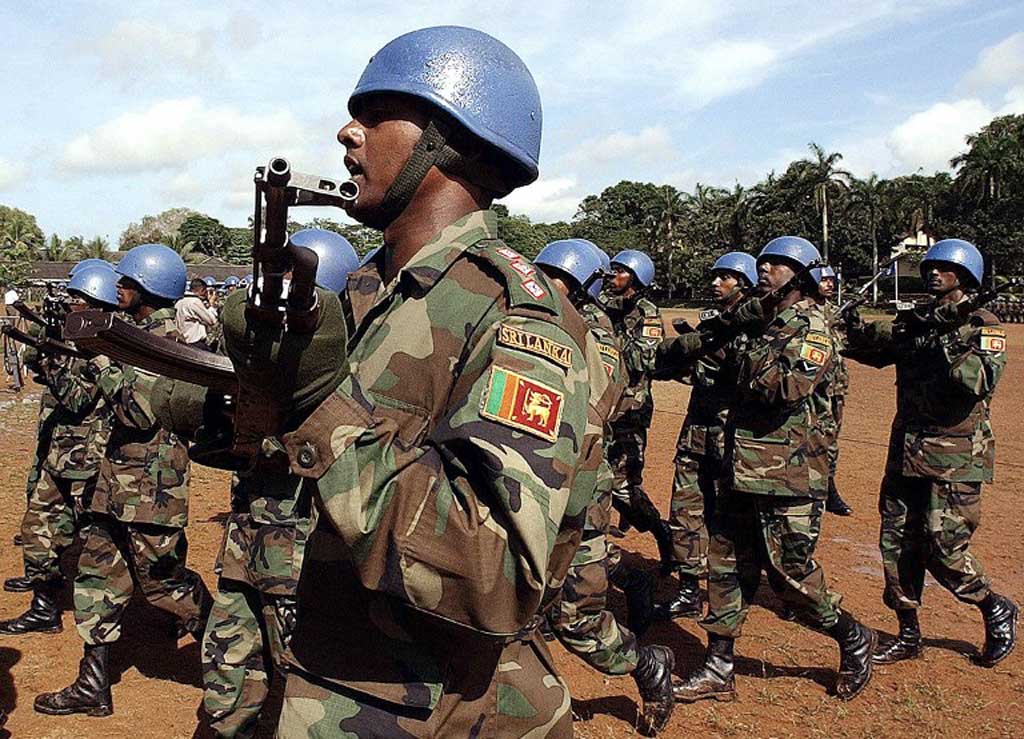In October 2019, the United Nations declared a ban on the deployment of Sri Lankan forces in the UN Peacekeeping missions, citing Sri Lankan president Maithripala Sirisena’s appointment of an alleged war criminal Lt. General Shavendra Silva as the Army Chief. This incident sparked a severe protest from Sri Lankan government followed by a diplomatic resistance from Sri Lanka’s permanent representative to the UN but to no avail. Nevertheless, Sri Lanka’s tryst with the UN peacekeeping missions always has been a troubled one with many ups and downs.
Sri Lanka, then known as Ceylon became a member state of the UN in the year 1955, and within five years Sri Lanka could secure its position as one of the non-permanent members in the United Nations Security Council under the presidency of Sri Lankan diplomat Sir Claude Corea. By all means, it was an exceptional event for a small and newly independent island nation-state to stand among the giants at the UN Security Council during the Cold war context and the same year Sri Lanka made its maiden contribution to the UN peacekeeping mission by deploying six peacekeepers to the United Nation Mission in the Democratic Republic of Congo. In 1960, Dr Dag Hammarskjold, the then UN secretary-general sought the assistance of a Sri Lankan diplomat Dr Neville Kanakaratne to negotiate the ceasefire agreement in Congo.
Sri Lanka’s contribution to the UN Peacekeeping forces was largely marred by country’s civil war with the LTTE separatist movement in Sri Lanka. The deployment of Sri Lankan forces as UN Peacekeepers saw a drastic decrease during the civil-war era of Sri Lanka by giving much prominence to the national defence. Notwithstanding the brutal civil war that having an overarching impact on the Sri Lankan society, the government of Sri Lanka built up a large complex called “Institute of Peace Support Operations” in 2004 to train military persons to serve under the UN peacekeeping missions. The formation of “Institute of Peace Support Operations” sparked a new interest in Sri Lanka to deploy its forces to the UN peacekeeping missions, which was followed by dispatching of an infantry battalion of 950 troops to serve in the UN mission in Haiti. Nevertheless, this euphoria was short lived as the Sri Lankan peacekeepers faced sexual abuse allegations in Haiti, which resulted in sending more than 100 peacekeeping troops back to Sri Lanka in 2007. This incident brought utter disgrace to the county’s commitment to upholding the UN peacekeeping values. On the other hand, international human rights activists depicted this event as an example of how an army coming from a war zone brought their deeply entrenched culture of impunity for crimes against civilians.
After the military triumph over LTTE separatist movement in Sri Lanka, the Sri Lankan forces faced several war crime allegations which affected upon the deployment of Sri Lankan forces as peacekeepers in the UN peacekeeping missions. Especially the vehement criticism stemmed from the international human rights activists and pressure group like “Human Rights Watch “made a more negative impact upon Sri Lanka. Nevertheless, Colombo’s contribution in providing its troops to the UN peacekeeping mission saw a gradual increase regardless of the all human rights violations allegations.
In particular, the power transition which took place in Sri Lanka in 2015 affected upon country’s contribution to the UN Peacekeeping as the newly elected government chose to provide more Sri Lankan soldiers with the UN missions in favour of uplifting country’s image in the international arena. Especially, the award that Sri Lankan Peacekeeping forces received for their contribution to the UN missions in South Sudan last year is a consolation prize for Sri Lanka with all the troubled circumstances in deploying troops to the UN missions.
Yet, the adjustments that the country needs to adopt in providing a better contribution to the UN Peacekeeping mission stand indispensably important. One of the major factors that Sri Lanka needs to be concerned with is the lack of French language ability among its troops to serve in African countries. Like all the other South Asian states, Sri Lanka is Anglophone, notwithstanding its forces have been mainly deployed by the UN peacekeeping missions in French-speaking African countries. In that context, Sri Lankan forces require more training in improving their communication skills in French.
Also, the low level of deploying female officers by Sri Lankan forces to the UN missions indicates the archetype image of a strong patriarchal culture within the army. All in all, improving the capability of Sri Lankan forces to contribute better to the UN peacekeeping missions can benefit Sri Lanka from various perspectives. In analysing the economic rationale of military deployment to the UN missions, it becomes clear that revenue from Peacekeeping missions is a boon for a country that reserves a large sum from its annual budget to the maintain its army in the post-civil war phase. From a political perspective, the Peacekeeping commitment would help promote Sri Lanka’s soft power in the international arena, where the mainstream narratives have only emphasised on Sri Lanka’s brutal civil war past. A renewed commitment to peacekeeping should be seen as part of the new government’s efforts at rebalancing Sri Lanka’s foreign policy, tilting away from the more Sino-centric foreign policy.

